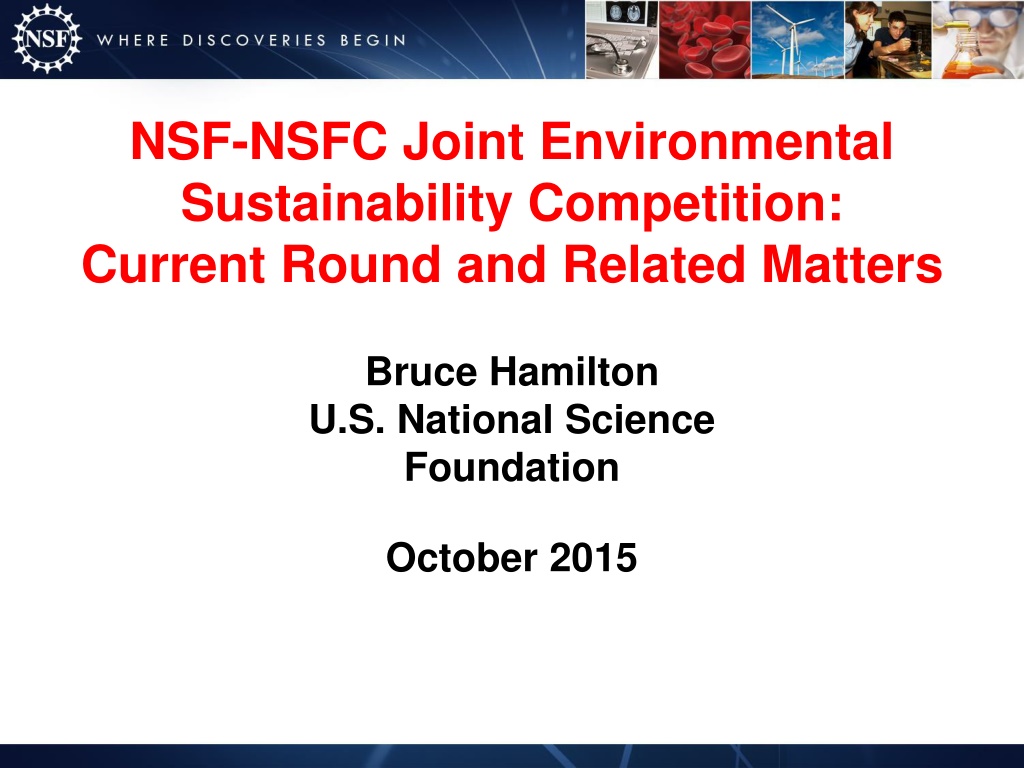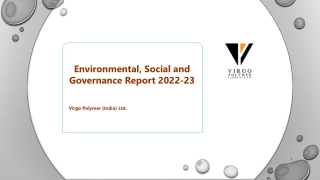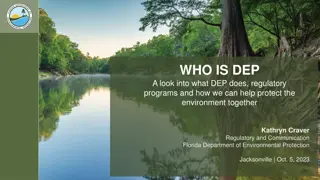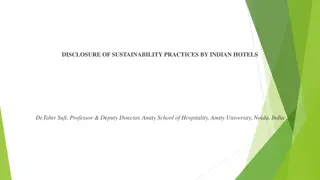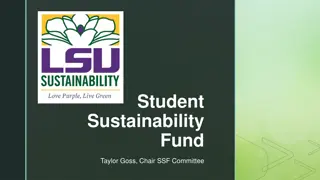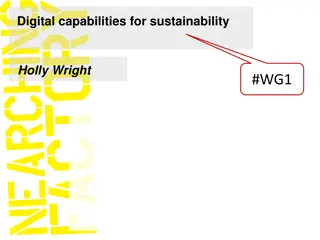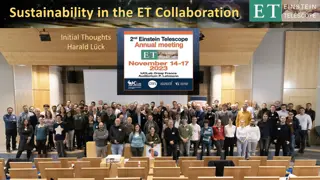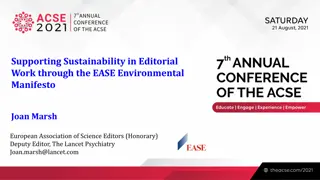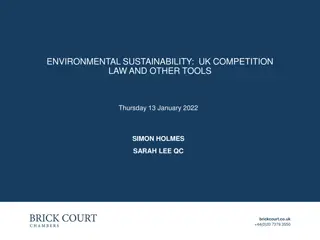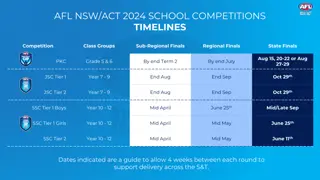Opportunities in Environmental Sustainability Competitions
The NSF-NSFC Joint Environmental Sustainability Competition focuses on topics like combustion related to sustainable energy and urban water sustainability. The current round includes deadlines and grant details. Additionally, NSF is involved in various related programs and has announced new Sustainability Research Networks (SRNs) focusing on urban sustainability.
Download Presentation

Please find below an Image/Link to download the presentation.
The content on the website is provided AS IS for your information and personal use only. It may not be sold, licensed, or shared on other websites without obtaining consent from the author. Download presentation by click this link. If you encounter any issues during the download, it is possible that the publisher has removed the file from their server.
E N D
Presentation Transcript
NSF-NSFC Joint Environmental Sustainability Competition: Current Round and Related Matters Bruce Hamilton U.S. National Science Foundation October 2015
Current Joint NSF-NSFC Competition Two Topics (posted by both NSF and NSFC): Combustion Related to Sustainable Energy Urban Water Sustainability Deadlines for Proposal Submission: Oct. 20 (NSF), Oct. 22 (NSFC) Duration of Grant(s): 4 years Grant(s) Size: $500K from NSF, 3 million yuan from NSFC
Current Joint NSF-NSFC Competition (continued) Combustion Related to Sustainable Energy Topic: Examples -- Increased knowledge of fundamental mechanisms related to carbon (CO2) capture technologies Increased knowledge of fundamental mechanisms for gasification (coal, biomass, coal/biomass mixtures Increase understanding of fundamental combustion reaction mechanisms for pollutant emissions (e.g., particulates, NOx), with efforts focused on reduction of such emissions from combustion systems (e.g., coal, ICEs)
Current Joint NSF-NSFC Competition (continued) Urban Water Sustainability Topic: Examples-- Means to enable urban wastewater re-use, including as potable water Routes for efficient and cost-effective capture, storage, and use of storm water Pathways to minimizing water consumption for all purposes Creation of advantageous synergies in the Food-Energy-Water (FEW) nexus Drinking water safety and security
NSF Related Matters SRNs ERCs CRISP Program Smart Cities Program INFEWS
New NSF SRNs on Urban Sustainability NSF has just announced 3 new Sustainability Research Networks (SRNs) on urban sustainability Each SRN is funded at $12 million for 4- 5 years, and involves a number of universities and other organizations
Example New NSF Urban Sustainability SRN NSF Award #14444754 SRN: Integrated Urban Infrastructure Solutions for Environmentally Sustainable, Healthy, and Livable Cities PI = Anu Ramaswami (U. Minnesota) Example Partner Cities-- U.S.: NYC, Detroit, Minneapolis, Austin, Ft. Collins, Asia: Rajkot (India),
NSF ReNUWIt ERC ReNUWIt is an Engineering Research Center (ERC) funded by NSF ReNUWIt = Renewing the Nation s Urban Water Infrastructure The NSF funding level is scheduled to be $35+ million over 10 years The focus is cities in the U.S. s southwest (e.g., San Francisco, Denver)
NSF CRISP Program CRISP = Critical Resilient Interdependent Infrastructure Systems and Processes Infrastructure Examples: urban water, the electric power grid, transportation, food, communications Example Project: Engineer John Crittenden s work in cities in the U.S. (e.g., Atlanta) and China (e.g. Beijing)
Smart Cities Research and NSF Smart Cities research is an emerging area for NSF funding NSF is emphasizing Cyber-Human- Physical Systems Cyber-Physical Systems (CPS) emphasizes sensor networks feeding computerized models and actuators For cities, of course, people are central
INFEWS at NSF INFEWS = Innovations at the Nexus of Food, Energy, and Water Systems INFEWS is another research area that is emerging at NSF NSF is encouraging research that: spans within a single project all three domains: food, energy, and water within a single project is interdisciplinary across at least three disciplines
